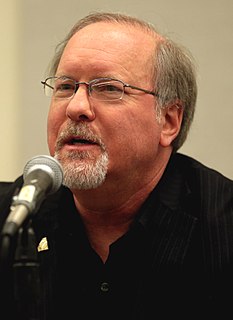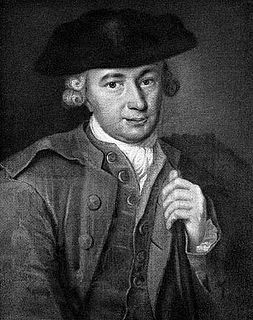A Quote by Adam Morris
I only translate authors whose work already interests me as a reader, and that's a decision I make based on multiple encounters with an author's work.
Related Quotes
Schoolchildren all over America are told to write to authors-often to authors whom they have never before heard of, whose work they are to young to understand in the least, and often in letters which are almost illiterate. If children are to be taught to respect the work of American poets I think some better way might be found to do so- some way which would not make such an inconsiderate demand on the author's time.
I particularly love where I work because I was born, raised, and still live in the Bronx. I work in a Bronx location, so it's very fulfilling to me to be working in my home borough, and working with kids that are a lot like me and who can see themselves in me. My own teaching philosophy is to expose them to books that they might not otherwise read, particularly authors of color, authors whose stories are based in New York City.
A hundred years ago-even 20 or 30 years ago-it was possible, if not always easy, to close major business by calling on and satisfying a key decision-maker. Today, every piece of business entails multiple decisions, and those decisions are virtually never made by the same person. Not only do you have to contend with multiple decisions, but the people who make those decisions may not even work in the same place.
But even technical work filled with formulas can be valuable and important. Einstein offered a lot of technical work on quantum physics, which mostly eludes me. I refer to his work, and I have studied it, but I am not a physicist. But look at Einstein's simple statement that the most important decision you ever will make is the decision whether you live in a friendly universe or a hostile universe.
My readers have to work with me to create the experience. They have to bring their imaginations to the story. No one sees a book in the same way, no one sees the characters the same way. As a reader you imagine them in your own mind. So, together, as author and reader, we have both created the story.
Authors have a greater right than any copyright, though it is generally unacknowledged or disregarded. They have a right to the reader's civility. There are favorable hours for reading a book, as for writing it, and to these the author has a claim. Yet many people think that when they buy a book they buy with it the right to abuse the author.
Britain is not part of the single currency. That is a decision we have taken, a voluntary decision of this country, but as a result are part of a European Union 19 of whose members are rapidly integrating, creating political, fiscal, monetary, economic union to make their currency work. And that is increasingly rubbing up against the operation.
I, too, am deeply concerned with an overarching idea that dramaturgs are now authors . . .. I am not taking the position that all dramaturgs own copyright, deserve special billing credit, or should receive remuneration akin to that of the playwright. I know from my ears at the Dramatists Guild that almost everyone a writer encounters has suggestions of how to write and rewrite the play or musical to make it work.
The desire to be liked is acceptable in real life but very problematic in fiction. Pleasantness is the enemy of good fiction. I try to write on the premise that no one is going to read my work. Because there's this terrible impulse to grovel before the reader, to make them like you, to write with the reader in mind in that way. It prevents you doing work that is ugly or upsetting or difficult. The temptation is to not be true to what you want to write and to be considerate or amusing instead. I'm always trying to fight against the impulse to make my readers like me.

































